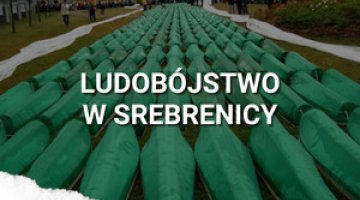Bosnia & Herzegovina: economic pressure and Dodik’s increasing separatism
The separatist rhetoric of the government of Republika Srpska (RS), which is part of Bosnia & Herzegovina (BiH), has been intensifying over the past few weeks. On 24 April the government coalition, led by the Union of Independent Social Democrats (SNSD), signed a declaration in the RS parliament stating that real estate located in BiH is owned by the entities that are part of this state, i.e. RS and the Federation of Bosnia and Herzegovina (FBiH), and not the central government. The declaration also calls for negotiations with the FBiH government in order to delimit the borders between the entities that make up BiH, and to set up a unit in the RS Ministry of the Interior that would monitor it. The document also obliges judges representing Bosnian Serbs to suspend their work in the Constitutional Court of BiH (currently there is one representative of RS in this body) and provides for the option of RS’s peaceful separation from BiH, if representatives of the FBiH continue to act contrary to the Dayton Agreement (for example, by demanding an increase of soldiers in the EUFOR Althea military operation in BiH). Politicians from the opposition Serbian Democratic Party (SDS), the Party for Democratic Progress (PDP) and the List for Justice and Order (Lista za pravdu i red) refused to sign the declaration.
The adoption of this declaration is another twist in the long-standing dispute over state ownership. In February this year the High Representative for Bosnia and Herzegovina (a position established under the Dayton Agreement) suspended the real estate act which the RS parliament had passed a year earlier. This act had previously been called into question by the Constitutional Court of BiH, ruling that RS did not have the competence to regulate this issue. This act assumed that rivers, forests, military facilities, municipal buildings and construction plots were the ownership of the RS government, which could freely dispose of these assets. The Bosnian Serb leader Milorad Dodik rejected the decision of High Representative Christian Schmidt and declared that the act was still in force. At the end of April, he sharpened his secessionist rhetoric: during a ceremony commemorating the victims of the genocidal regime of the Independent State of Croatia (NDH) during World War II, he presented a narrative about the unification of all Serbs. He also stated during military exercises in Batajnica that the army of Serbia was modern and sufficiently armed to defend the Serbs “no matter where they live”. This was a clear reference to the inhabitants of RS, which does not have its own army. The event was also attended by President Aleksandar Vučić and the Hungarian Prime Minister Viktor Orbán.
Commentary
- Dodik’s escalation of the separatist rhetoric is primarily intended to divert public attention from the fact that RS is struggling with serious financial problems. From his point of view, it is vital for RS to take over real estate so that it can maintain liquidity (and independence from both Sarajevo and international institutions). In December 2022, the RS government took out a loan of €110 million with a grace period of one and a half years from Hungary’s state-owned Eximbank in order to finance the budget deficit and repay part of its debt. In June 2023, RS has to start repaying not only this debt, but also the loans it has previously taken (a total of around 1.1 billion convertible marks, or €650 million). As the debt loop has started to tighten, Dodik began to look for more lenders among Chinese banks. In early April, the president of RS announced that the government in Beijing had agreed to accept its bonds as an instrument for financing loans for further investments, but on the condition that they were secured with real estate, which is the direct cause of the escalation of the Bosnian-Serbian dispute.
- Dodik has been playing the separatist card for a long time (see ‘Bośnia i Hercegowina – gry separatyzmem Republiki Serbskiej’). However, he adopted a more moderate stance after the Russian invasion of Ukraine. Given the lack of Russia’s military success in Ukraine and the increased international presence in BiH (EUFOR Althea staff increased by 500 soldiers in March 2022), Dodik temporarily toned down his nationalist and separatist statements. However, the financial and social problems, together with high levels of inflation (15%) and unemployment (around 30%) have forced him to resort to his old playbook once again.
- The latest phase of Dodik’s separatist escalation is another test for the West. As an experienced politician, he is aware that the EU and the United States have not been very effective in opposing actions that may threaten the stability of the region. Although the US imposed personal sanctions on Dodik in 2021, these were mainly image-related, as he does not own any assets in this country, and he chooses to pay official visits to Moscow more often than Washington. The imposition of such restrictions at the EU level, which would be much more effective, is blocked by Hungary among other countries. Dodik hopes that the West, in a spirit of appeasement, will not react to the planned takeover of real estate – a move which is of key importance to him, given RS’s financial problems. On 10 May, during a meeting of the UN Security Council, Schmidt expressed his concern over the content of the declaration signed in April by the deputies in RS, although his report is unlikely to have any major repercussions.
- The Bosnian Serbs have been blocking any potential resolution to the state’s internal problems by continually obstructing central institutions (such as the Directorate for Indirect Taxes or the Prosecutor’s Office of BiH). In March this year, the RS government announced that it would break off cooperation with American and British diplomats due to their “interference in the internal affairs” of BiH. Serb leaders habitually resort to the method of fait accompli, disregarding the fact that foreign policy is the responsibility of the central government, and not the individual entities. An appeal for non-cooperation has been issued to all Bosnian Serbs who work in BiH institutions. This is intended to consolidate Dodik’s political electorate, but it also makes the leader all the more willing to follow the path of separatism and authoritarian rule. BiH’s minister of foreign trade and economic relations, Staša Košarac, a member of the Serbian SNSD party, recently threatened to paralyse state institutions and projects in the second entity, the FBiH, unless the New Eastern Connection gas pipeline project is included in the central government’s agenda. This concerns the proposal to build an additional onshore branch of the TurkStream gas pipeline, which carries Russian gas. If the investment is implemented (which would benefit RS), the country as a whole will remain dependent on Russian gas for the foreseeable future (currently, Russia accounts for 100% of its imports). The pressure from RS’s political leaders proved so effective that on 11 May the ministers of the central government adopted a draft negotiating instruction to construct another interconnector between BiH and Serbia.





